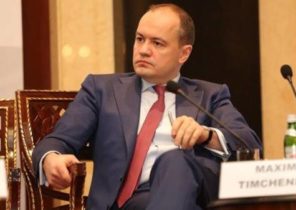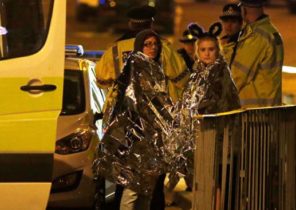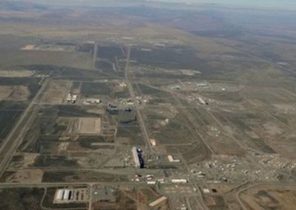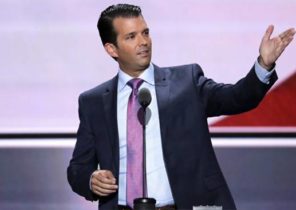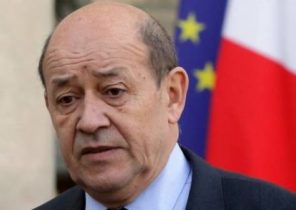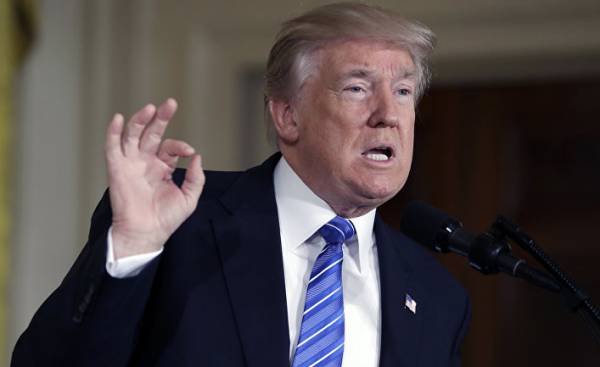
David Cole is a correspondent for The Nation, covering legal issues, writer. The author of the recently published book Engines of Liberty: The Power of Citizen Activists to Make Constitutional Law (“Engines of liberty: law-making possibilities of civil society activists in constitutional law”). Head of legal Department of the American Union of protection of civil liberties. We offer you an edited and shortened version of the interview with D. Cole.
Jon Wiener: is it Possible to qualify the dismissal of the Prosecutor General or forcing him to resign to stop the investigation of crimes in which the suspect of the President as obstruction of justice?
David Cole: It depends on what motivates trump. The President certainly has the right to dismiss or request resignation of any Ministers of his Cabinet, including the attorney General. If he does this in order to prevent the investigation of the criminal actions of the President, it raises serious questions about the rule of law, since no one, including the President, should not be above the law. But keep in mind that the dismissal and Roman sessions (Jeff Sessions) actually is not Donald trump’s solution to the problem, because sessions has the right to stop the investigation conducted by the special Prosecutor. And who would trump any appointed successor and Roman sessions, the man during the hearing on confirmation of his candidacy will face enormous pressure and will be forced to give an undertaking not to interfere in the Affairs of the special Prosecutor and not to fix his obstacles. So I don’t think that the dismissal and Roman sessions actually does something to Trump.
— Trump may postpone the hearing for approval of a new attorney General at least for a while. It can wait until the senators leave for the August break, and then make a temporary, intersession assignment. This would allow him to “hold out” without a hearing on confirmation of nominations and before the third of January 2019.
— He might be able to do it. It would be an act of desperation. All we are discussing here — the dismissal and Roman sessions, the appointment of his successor during the parliamentary recess, the desire to dismiss special Prosecutor Robert Mueller (Robert Mueller) — all actions would be acts of utter desperation, the President’s actions, cornered. Each of these actions would cost the President dearly. They could testify to the fact that he decided it was “worth it”, that is, it makes sense to perform this action at any cost. But such action would make sense only if there is only one circumstance — if they were motivated by fear that the facts that the special Prosecutor will reveal in the course of its investigation, will cause the President great harm and embarrass him.
So if he did something like that, it is likely that there would be a very tense situation, and under the pressure of public opinion would have to find other ways of discovering these facts. People would feel that trump is trying to hide something important. And the Americans certainly would want to know what it can hide. Almost certainly you would create a bipartisan Commission. People started to require to disclose in the report all the circumstances carried out by the Mueller investigation. And the fact that all these options have been discussed and clearly underlines the fact that Donald trump feels cornered. The man even thought there is to go through all of this, until he begins to understand that if you do not take action, then it’s bad.
— The authors of the Constitution, of course, well aware of the likelihood that the President may commit crimes, but they also gave the President the right of pardon in the Commission of crimes under Federal criminal law. The President can pardon almost any. We know, as did bill Clinton, two hours before to leave office, he pardoned 176 people, including those who were involved in the whitewater scandal. As well as the fleeing of Marc rich (Marc Rich is an American businessman, accused of violating the embargo on trade with Iran and tax evasion in large amounts. Before his arrest, he fled to Switzerland — approx. TRANS.), ex-wife of which collected for the election campaign of Clinton 320 thousand dollars. He also pardoned his brother. Is there someone the President cannot pardon?
— He is the only person against whom there are doubts. He can pardon for a crime under the Federal criminal law with someone else, even if that person has not yet been charged, but provided that he will grant him a pardon for acts that he committed in the past. Of course, if he had pardoned his close relatives and senior leaders of his campaign headquarters to obstruct the investigation, then the American people and Congress would have the right to demand full disclosure of the facts. No President has ever tried to pardon himself. Anyway, nothing in the Constitution talked about. But, according to unwritten law, the right to pardon means the right to show mercy towards others, and not to be judge himself. So there is serious reason to believe that, in principle, the right to pardon does not apply to the President himself. I think that is unlikely we will witness how the President is trying to pardon himself. Of course, if he gets really desperate. But if a person has been in such a desperate situation, he is likely to resign than to try to pardon himself and stay afloat. But with our President, you can never be sure — as the saying goes, “never say never”.
